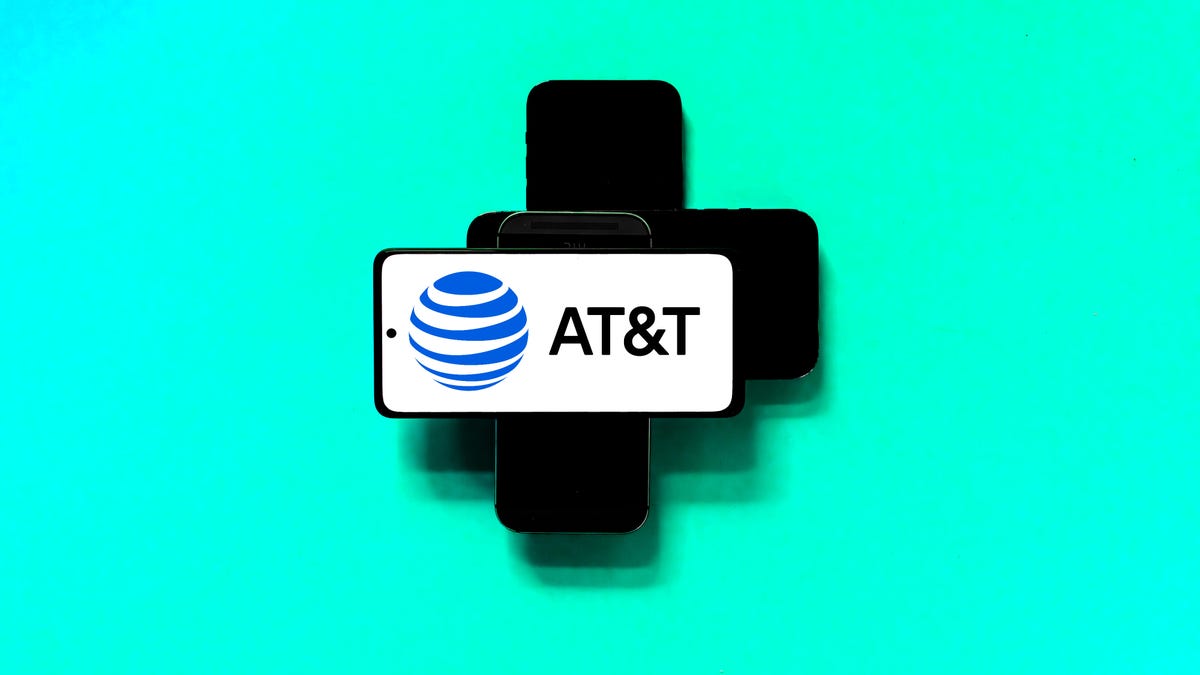AT&T Expands 5G Home Internet With New 'Internet Air' Offering in 16 Markets
After taking a slower approach than its rivals, AT&T is finally using 5G to compete with home broadband.

AT&T is finally expanding its use of 5G for home internet. On Tuesday, the wireless carrier announced that it is expanding its fixed wireless offering to 16 new markets, offering home broadband over 5G for $55 per month.
Called "Internet Air," the new markets include "areas of Los Angeles, Philadelphia, Cincinnati, Harrisburg-Lancaster-Lebanon, Pennsylvania; Pittsburgh, Las Vegas, Phoenix (Prescott), Chicago, Detroit, Flint-Saginaw-Bay City, Michigan; Hartford-New Haven, Connecticut; Minneapolis-St. Paul, Portland, Oregon; Salt Lake City, Seattle-Tacoma and Tampa-St. Petersburg (Sarasota), Florida."
In a blog post, Erin Scarborough, president of AT&T's broadband and connectivity initiatives, said the carrier determined its 5G home broadband locations by looking for areas in its network that had "enough wireless coverage and capacity to deliver not only a great in-home experience, but also maintain a top-notch wireless service for our existing mobile users."
Those who also have AT&T wireless service and sign up for automatic payments will be able to lower the bill to $35 per month. Similar to offerings from T-Mobile or Verizon, AT&T's 5G home internet does not have overage fees, equipment charges or annual contracts. AT&T also says that it won't increase the price "at 12 months."
The carrier previously was experimenting with the Internet Air product in parts of Los Angeles and Philadelphia, pitching the product in some locations as an upgrade to its older, DSL home broadband service, particularly in areas where its fiber-based internet isn't available. The carrier tells CNET that it expects download speeds over 5G to be between 40Mbps and 140Mbps and that upload speeds will be between 5Mbps and 25Mbps. While not as fast as fiber or cable, this would mark a noticeable speed boost from the "generally 6Mbps or lower" speeds it says its DSL users experience.
AT&T says it currently has around 6 million nonfiber broadband customers.
Read more: What is 5G Home Internet?
For reference, Netflix says it needs speeds of at least 15Mbps for 4K streaming, while Zoom says it requires download speeds of 3.8Mbps and upload speeds of 3Mbps for HD group video calls. It was not immediately clear what kind of upload speeds or latency AT&T's Internet Air product might offer.
Setting up AT&T's Internet Air also appears to be similar to how its rivals' deliver their respective home internet offerings, with the carrier shipping users a modem/Wi-Fi router combo device and guiding setup, installation and management through an accompanying app. If you decide to cancel the service, you will simply need to return the device to AT&T.
AT&T's Internet Air aims to turn 5G into home broadband.
Those with larger homes can get Wi-Fi extenders that connect to the router for an additional $10 per month, per extender (with a max of five extenders). Users can also connect their existing Wi-Fi routers to the AT&T device's ethernet port if they would prefer to use their own setups. AT&T says its app can also guide users on ideal extender placement and that it will be able to send notifications to let users know that moving the router or extender could be useful to optimize the network.
While 5G hasn't lived up to its significant hype in a number of areas, it has delivered some much-needed competition for consumers in home broadband as wireless carriers looked to compete with big cable companies such as Comcast, Charter and Optimum (plus in the case of T-Mobile, even wired offerings from Verizon and AT&T).
AT&T's home internet news comes only a few days after the carrier confirmed that it was giving its 5G network an earlier-than-expected speed boost. Scarborough told CNET that the earlier clearance of C-band spectrum "did not play into our decision" to expand into these markets and that it has been planning this move for "several months."
"We've been very thoughtful in how we've modeled this and where we believe we can provide the best in class customer experience."

